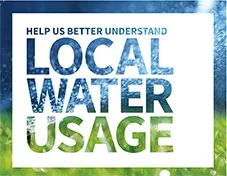The Water Conservation Collaboration Project aims to investigate how advertising and technology can shift perceptions of water scarcity and change short- and long-term water usage behavior.
Over the past few decades, prolonged droughts have become a serious threat in the American West and Southwest. Although there were substantial short-run reductions in residential water consumption during the last California drought, maintaining those reductions for the long-term and convincing those who have not yet reduced consumption remain a priority. Professors Kristina Brecko of University of Rochester Simon Business School and Wes Hartmann of the Stanford Graduate School of Business are conducting a research project to address this challenge.
We aim to:
- Measure changing beliefs about water scarcity
- Introduce and encourage adoption of environmentally friendly products
- Change long-run water usage behavior
To achieve these, we will:
- Use a sequence of messages delivered by social media to educate individuals about the severity and persistence of drought in California
- Employ a recently marketed water management tool to drive them to act in line with water conservation efforts
- Use social media tracking and post-advertisement surveys to track their reported beliefs and intentions over time
Public–Private Partnerships Addressing Water Conservation
Our experiment will also serve as a pilot study to illustrate the positive benefits of collaboration between water agencies, both public and private, and the use of water management tools.
In the long term, we hope to:
- Establish a platform where all companies can benefit from water conservation campaigns
- Find the campaign most effective at changing opinions, an insight that will help water conservation agencies plan future media campaigns
Interested in Participating?
We invite participation from both public and private companies and agencies involved in water conservation and management.
Collaboration between water conservation agencies and companies developing water saving technologies has the potential to:
- More effectively promote water conservation
- Elicit greater positive behavioral changes in water consumption
Faculty Director
Lead Researcher
Kristina Brecko
Assistant Professor
Simon Business School
University of Rochester

Questions about the study conducted by Stanford GSB, in collaboration with Redwood City, should be directed to Chris Lion.
